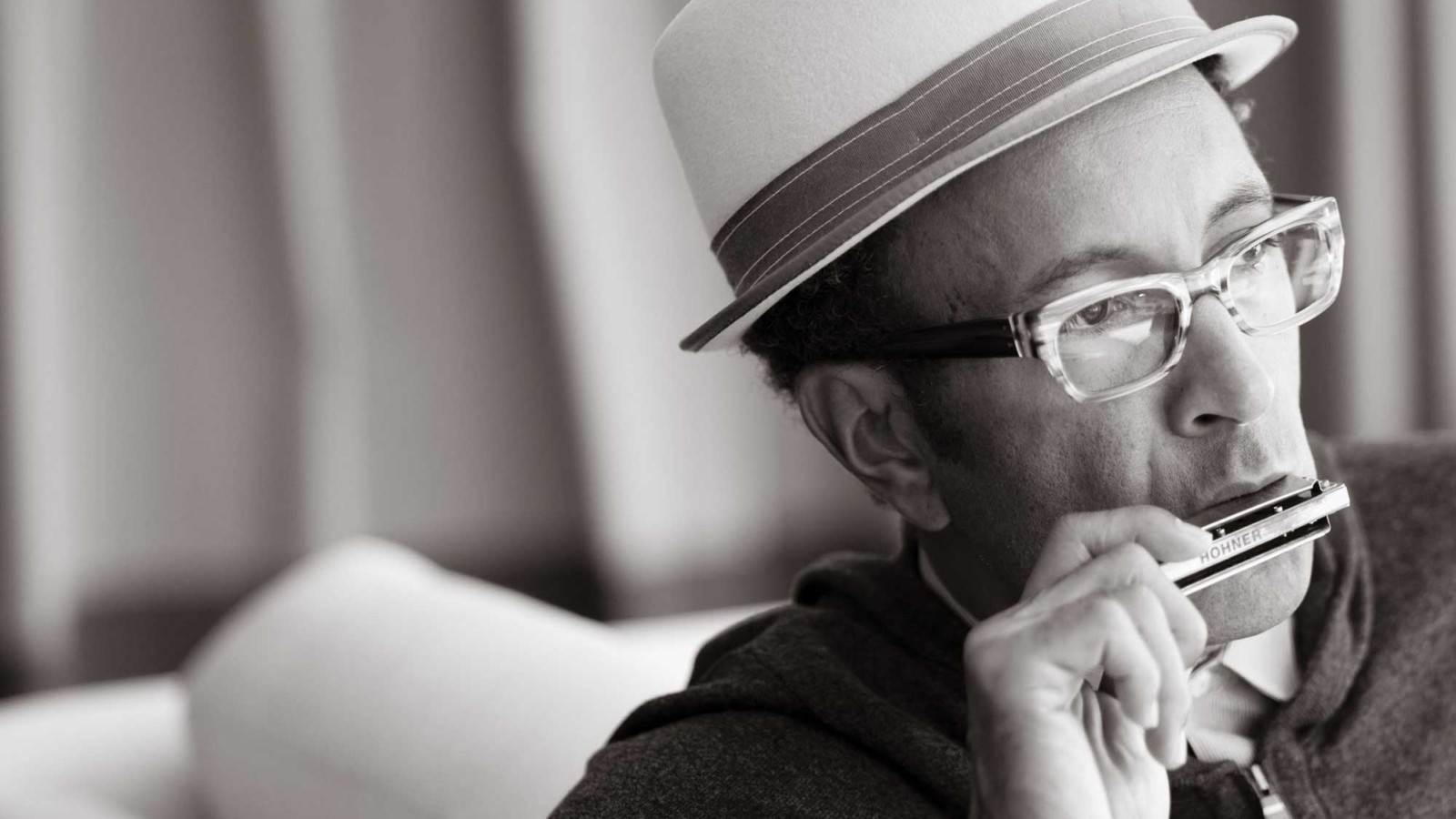The marketing entrepreneur and musician has dedicated himself to keeping the blues alive
Shawn Amos’ move from his fast-paced life in Los Angeles as the youngest son of cookie company founder Wally “Famous” Amos to the quiet of Williston’s campus rocked his teenage world. But his two years at the school were transformative, and helped him cultivate his artistic side. Now back in California, Amos is a songwriter, blues singer, digital-marketing entrepreneur, and founder of the digital content company Freshwire. His second full-length album, The Reverend Shawn Amos Loves You, was released in the fall of 2015.
What was your transition to Williston like from L.A.?
Williston was like another planet. It felt very old and very conservative. It felt stuffy. And it was in the middle of nowhere. I was a kid who grew up in Hollywood. I was used to a lot of action and things that were the coolest and modern. But I had always been thoughtful and mindful and sensitive and artful, and I felt a little bit self-conscious of that in my Los Angeles life. Being at Williston, I discovered what it meant to be intellectual. I got to explore that part of myself and
revel in it.
What at Williston influenced your music career?
I had a roommate named Nathaniel Foote. He was a musician. He came to Williston with a guitar. I really admired his singing and songwriting. I made it a mission of mine to further his career. He sparked the idea of creating music. I had always loved music, and music has in some ways literally saved my life. But I didn’t think I was someone who would make music. Hanging out with Nathaniel got me to think about that. I think it opened my eyes and got me comfortable with the idea of creating things. I was deeply involved in creating things at Williston. I acted in a play. I was writing poetry. I began experimenting with filmmaking. I got wildly immersed in exploring my creativity.
What were some of the themes of your poetry as a teenager?
One of the things that I began expressing privately in my writing was about race and identity. I grew up a black male in white affluent neighborhoods. And then I went to this New England boarding school. I didn’t have a lot of black frames of reference, and it created a number of difficult identity issues that I had to work out. I later wrote a lot about this stuff in my earlier albums.
Why was Williston a transformative experience for you?
What I needed was to be in an environment where I would stand or fall based on my own merits and not have the excuse, however real it was, of a dysfunctional family or a distracting city. I had to claim responsibility for my own actions from top to bottom. I could have screwed that up or I could have risen to the occasion. I chose to rise to the occasion. I thought, wow, here’s a place where I can find out what I’m made of, out of my own merit. I can see what happens when I just do the work. And that has stayed with me forever. And I tell that to my own kids. All you have is the work you do. I felt like, this is your now-or-never moment. What are you going to make of your life?
What are you working on now?
I spent the last two years purposefully only listening to old blues because I really wanted to immerse myself. I wanted to become a real keen student of it and be worthy of carrying the torch along. I started a company in 2009 called Freshwire and I sold it in 2012 to a large advertising agency. I have this life of being in the marketing world and advising big brands about how to market and brand themselves in the social media space. I do a lot of public speaking on that topic. A lot of my life is involved in storytelling. Helping brands tell stories. Telling my own blues stories. It’s been fun. It’s been a wild ride.

